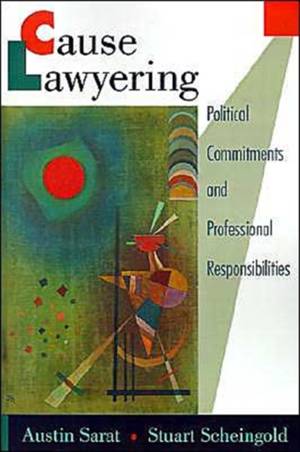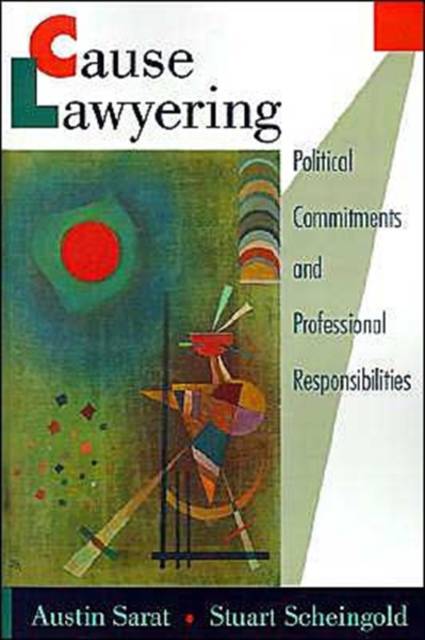
- Afhalen na 1 uur in een winkel met voorraad
- Gratis thuislevering in België vanaf € 30
- Ruim aanbod met 7 miljoen producten
- Afhalen na 1 uur in een winkel met voorraad
- Gratis thuislevering in België vanaf € 30
- Ruim aanbod met 7 miljoen producten
Zoeken
Cause Lawyering
Political Commitments and Professional Responsibilities
€ 212,45
+ 424 punten
Omschrijving
Why do some lawyers devote themsevles to a specific social movement or political cause? What can we learn from such lawyers about the relationship between law and politics. CAUSE LAWYERING offers an insightful portrait of lawyers who sacrifice financial advantage in the name of a more just society. These telling essays show how cause lawyering is indispensable to the legitimization of professional authority.
Specificaties
Betrokkenen
- Uitgeverij:
Inhoud
- Aantal bladzijden:
- 576
- Taal:
- Engels
- Reeks:
Eigenschappen
- Productcode (EAN):
- 9780195113204
- Verschijningsdatum:
- 8/01/1998
- Uitvoering:
- Paperback
- Formaat:
- Trade paperback (VS)
- Afmetingen:
- 155 mm x 233 mm
- Gewicht:
- 798 g

Alleen bij Standaard Boekhandel
+ 424 punten op je klantenkaart van Standaard Boekhandel
Beoordelingen
We publiceren alleen reviews die voldoen aan de voorwaarden voor reviews. Bekijk onze voorwaarden voor reviews.






